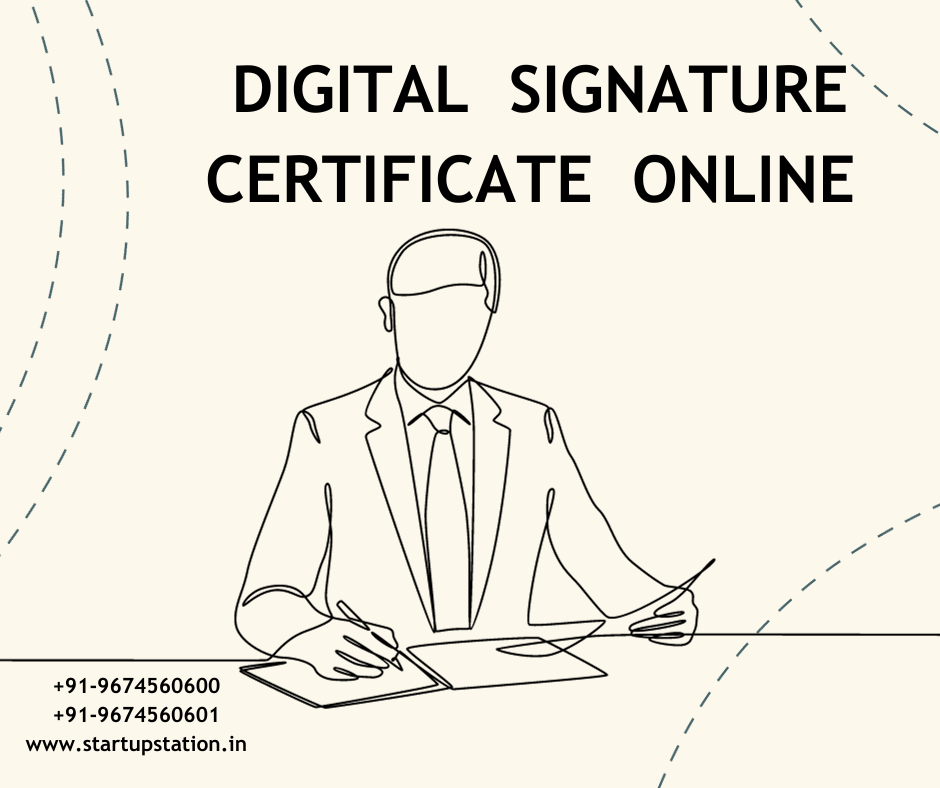I. Introduction
In today's digital era, ensuring the authenticity and security of online transactions and documents is paramount. One effective solution to this challenge is the utilization of Digital Signature Certificates (DSCs). In this comprehensive guide, we will delve into the world of DSCs, exploring their significance, benefits, and practical applications.
II. Introduction to Digital Signature Certificate (DSC)
A Digital Signature Certificate (DSC) is a cryptographic tool issued by certifying authorities (CAs) to verify the identity of the signatory in electronic transactions. It serves as a digital equivalent of a handwritten signature, providing assurance of the signer's authenticity and the integrity of the signed document.
III. Importance of Digital Signature Certificates
1. Legal Compliance
DSCs play a pivotal role in meeting legal requirements for electronic signatures, ensuring compliance with regulations governing digital transactions.
2. Business Transactions
In corporate settings, DSCs facilitate secure signing of contracts, agreements, and financial documents, streamlining business processes and enhancing security.
3. Government Transactions
Government agencies often mandate the use of DSCs for online filings and submissions, fostering trust and security in digital interactions with governmental bodies.
4. Financial Transactions
Banks and financial institutions rely on DSCs to safeguard online banking transactions and protect sensitive financial data from fraud and unauthorized access.
5. International Trade
DSCs are indispensable for cross-border trade, facilitating secure exchange of trade-related documents and ensuring compliance with international regulations.
IV. Benefits of DSC and Its Importance
1. Security
DSCs offer robust security by verifying the signer's identity and ensuring the integrity of digital documents, protecting against tampering and unauthorized access.
2. Legally Binding
With legal validity in many jurisdictions, DSCs hold the same legal status as physical signatures, providing a secure and legally recognized method for signing documents.
3. Efficiency
By eliminating the need for physical signatures and paperwork, DSCs streamline document handling, leading to faster processing times and improved operational efficiency.
4. Cost Savings
The adoption of DSCs reduces reliance on paper-based processes and courier services, resulting in cost savings and enhanced resource management for businesses.
5. Global Acceptance
DSCs are recognized and accepted internationally, facilitating secure cross-border transactions and ensuring the authenticity of documents exchanged between parties.
6. Data Integrity
Utilizing encryption technology, DSCs ensure the integrity and confidentiality of data during transmission, safeguarding sensitive information from interception or manipulation.
V. Class 3 Digital Signature Certificate
1. Definition
Class 3 DSC is the most secure certificate with both signature and encryption capabilities, issued by certifying authorities to individuals and organizations.
2. Issuing Authorities
The Controller of Certifying Authority authorizes certification agencies to issue Class 3 DSCs, ensuring adherence to stringent security standards.
3. Uses and Applications
Class 3 DSCs find widespread applications in MCA e-filing, income tax e-filing, e-tendering, GST application, and various other online transactions requiring high levels of security.
VI. Class 3 DSC for Individual
1. Features
Individuals can obtain Class 3 DSCs with ePass Tokens, ensuring confidentiality and validity of electronically submitted documents.
2. Application Process
Startup Station offers a seamless online application process for individuals seeking Class 3 DSCs, eliminating the need for manual document submission.
3. Benefits
By attaching a Class 3 DSC to electronic documents, individuals can authenticate their identity and ensure the integrity of digital records, bolstering trust and security.
VII. Class 3 DSC for Company/Organization
1. Features
Companies and organizations can obtain Class 3 DSCs in their name, empowering authorized signatories to represent the entity in digital transactions.
2. Application Process
Startup Station simplifies the application process for obtaining Class 3 DSCs for companies, ensuring compliance with legal and regulatory requirements.
3. Benefits
By leveraging Class 3 DSCs, companies can conduct secure online transactions, sign contracts, and submit regulatory filings with confidence and authenticity.
VII. Renewal of Class 3 DSC
1. Process
Renewing Class 3 DSCs entails following a straightforward process similar to the initial application, ensuring continued validity and compliance with regulatory requirements.
2. Pricing
Startup Station offers competitive pricing for DSC renewal, maintaining transparency and affordability for clients seeking to renew their digital certificates.
Acquire Your DGFT Digital Signature Securely with Startup Station
Startup Station is your trusted partner in obtaining DGFT Digital Signature Certificates, comprising signature, encryption, and USB token for enhanced security.
3. Services Provided
Startup Station offers comprehensive services for acquiring DGFT Digital Signature Certificates, guiding clients through the application process with expertise and efficiency.
4. Benefits
By obtaining DGFT Digital Signature Certificates through Startup Station, clients can fortify the security of their online transactions, safeguarding the authenticity and integrity of digital documents.
FAQs (Frequently Asked Questions)
What is the validity period of a Class 3 DSC?
Class 3 DSCs typically have a validity period of two years from the date of issuance.
Can I use a Class 3 DSC for personal transactions?
While Class 3 DSCs are primarily intended for business and organizational use, individuals can also use them for secure online transactions.
Is there a difference between a digital signature and an electronic signature?
Yes, digital signatures utilize cryptographic technology to verify the authenticity of the signer and ensure the integrity of the signed document, whereas electronic signatures may not offer the same level of security and assurance.
How long does it take to obtain a Class 3 DSC?
The time taken to obtain a Class 3 DSC depends on the certification agency and the completeness of the application process. Startup Station aims to expedite the process and minimize turnaround time for clients.
Can I use my Class 3 DSC for multiple transactions?
Yes, Class 3 DSCs can be used for multiple transactions within the validity period, provided they are used in accordance with the terms and conditions specified by the issuing authority.
What documents are required to apply for a Class 3 DSC?
To apply for a Class 3 DSC, you typically need to submit identity proof, address proof, and other relevant documents as per the requirements of the certification agency. Commonly accepted documents include Aadhaar card, passport, driver's license, and utility bills.
Can a Class 3 DSC be used for e-commerce transactions?
Yes, Class 3 DSCs can be utilized for e-commerce transactions that require secure authentication and validation of the parties involved. They provide an added layer of security for online purchases and transactions.
Is there a difference between a digital certificate and a digital signature certificate?
Yes, there is a distinction between a digital certificate and a digital signature certificate. A digital certificate is a broader term that encompasses various types of certificates used for encryption, authentication, and secure communication. On the other hand, a digital signature certificate specifically pertains to certificates used for digitally signing documents and verifying the identity of the signer.
Can a Class 3 DSC be revoked or suspended?
Yes, in certain circumstances, a Class 3 DSC can be revoked or suspended by the issuing authority. This may occur if there are concerns regarding the misuse of the certificate, compromise of the private key, or other security-related issues.
Are Class 3 DSCs accepted internationally?
Yes, Class 3 DSCs are recognized and accepted internationally for various purposes, including cross-border transactions, legal agreements, and regulatory filings. However, it's essential to verify specific requirements and regulations in the relevant jurisdiction to ensure compliance and validity.



